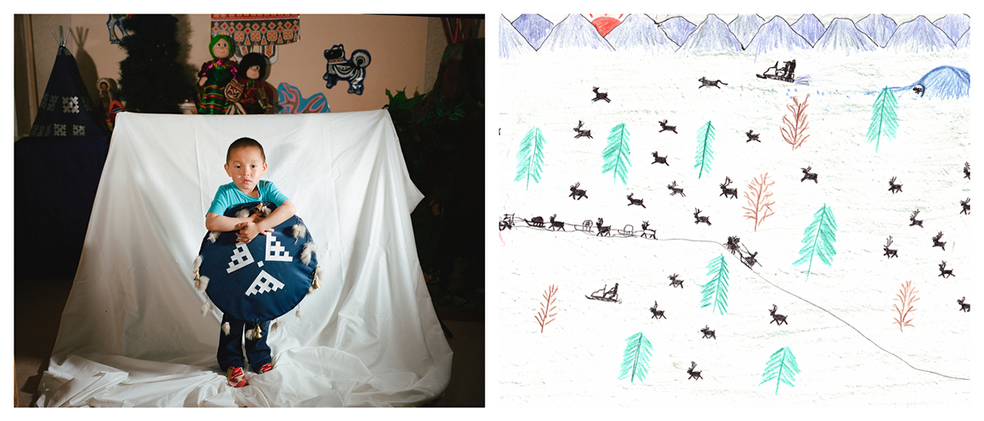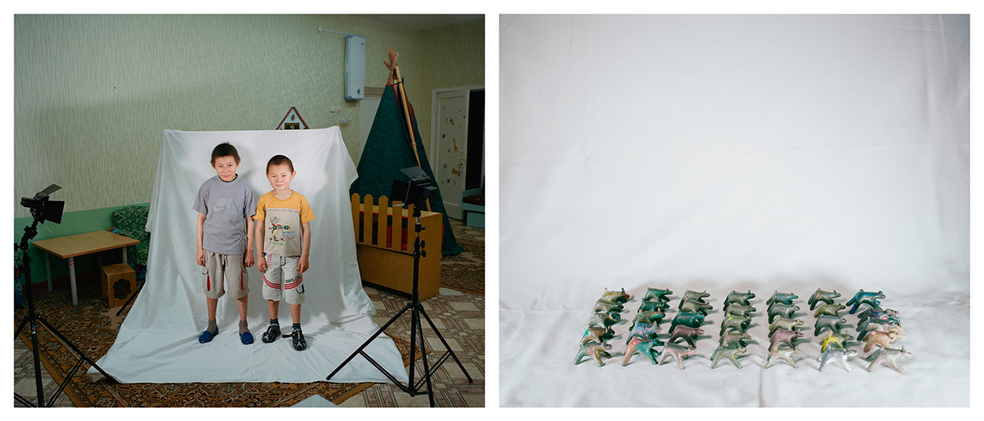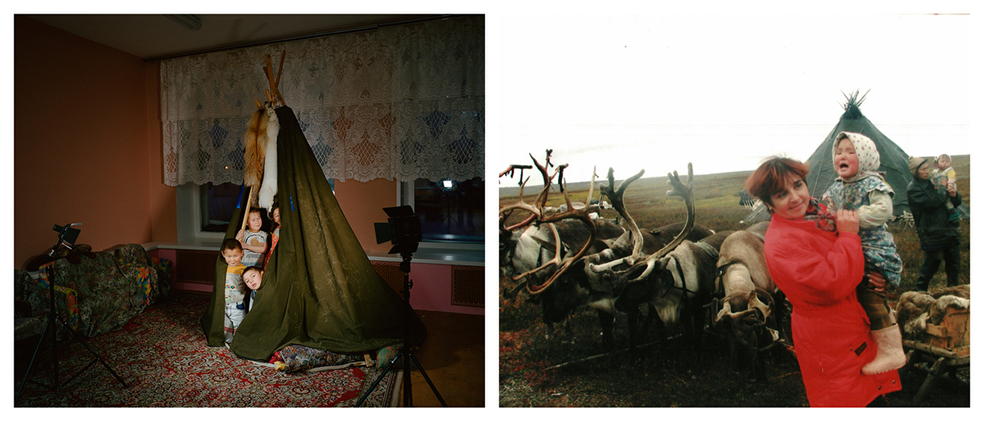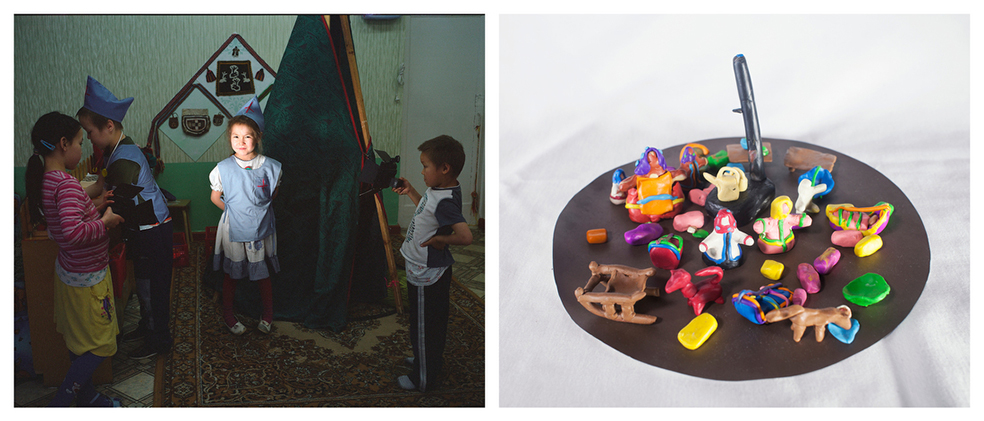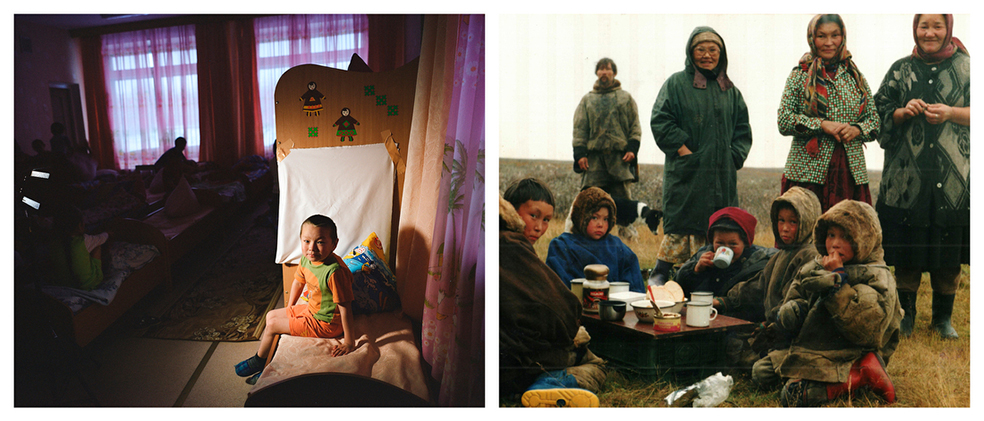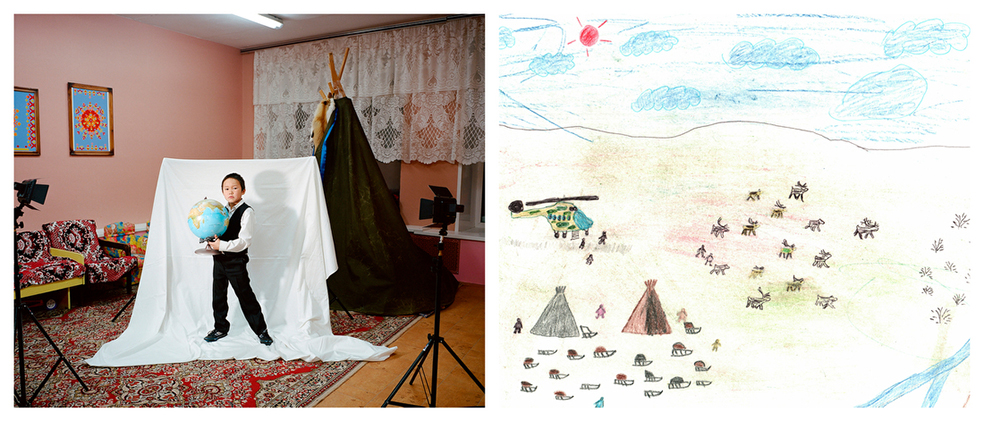In the arctic tundra of Russia, there is a boarding school for the Nenets, the nomadic northern indigenous people. The children study and live there to receive formal education from autumn to spring. From April to September, they are with their families and reindeers in the middle of the tundra, staying in the traditional mobile tents called Chum. The boarding school is located near the city of Vorkuta. The Nenets around the city, about 150 km south of the Kara Sea of the Arctic Ocean, have been more isolated than the Nenets in other regions, where the population was more assimilated to the mainstream society during the Soviet era. For the children, the immediate transition to the settlers’ lifestyle is daunting. To ease the transition issues, this boarding school makes some humane efforts: it decorates the interior with a lot of ethnic-themed things including even mini-Chums in order to make them feel comfortable and, at the same time, to remind them of their roots embedded to the tundra.
For children of the Nenets, schooling was informally done in the tundra, where they mostly learnt how to survive in the freezing climate with a small number of their tribe members. However, the globalization reached even the tundra in the past few decades, inevitably increasing the contacts between the nomadic Nenets and the settlers, which caused changes in the lifestyle and mindsets of the Nenets. Consequently, more and more parents in the tundra also began to see the needs for their children to get education including writing and reading in Russian, as well as their own language. After the boarding school, some children continue education in cities and get fully integrated into the modern Russian society; however, the majority of them still go back to the freezing tundra to continue their nomadic life. This boarding school demonstrate the process of this identity transition of the northern indigenous people, the collision of the two different worlds and their dilemma in the assimilation into the globalized society.
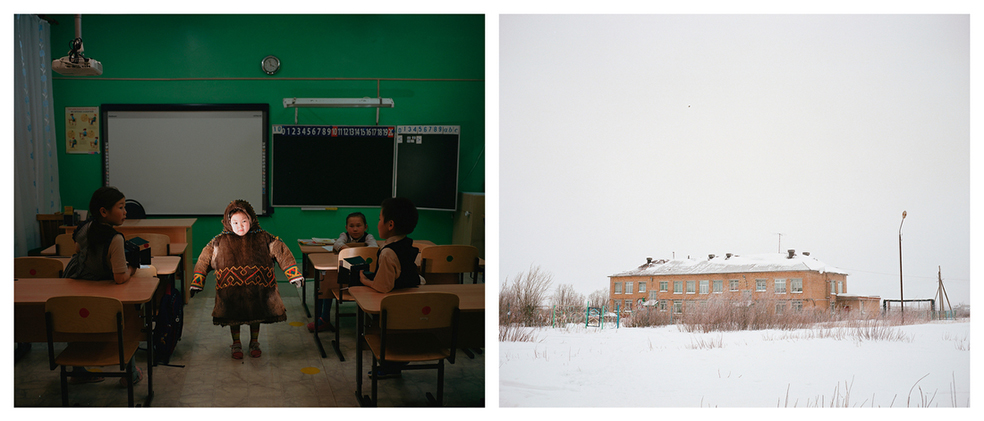
After growing up in Japan and studying in journalism in the University of Missouri, Columbia, Ikuru Kuwajima has been living and photographing in various post-Soviet countries in the past 8 years. He extensively photographed in Central Asia and now lives Russia, continuing personal projects. His photobook “Tundra Kids” was published in Vienna, Austria in 2015. He is fluent in Japanese, Russian and English.
Website: ikurukuwajima.com
